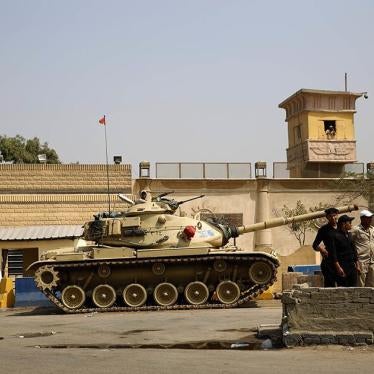Visiting Brussels for a summit between the European Union and the African Union this week, Egypt’s President Abdel Fattah al-Sisi is eyeing a series of separate high-profile meetings as another opportunity to boost his tainted image. But instead of giving the president a highly-undeserved red carpet treatment, European leaders should focus on highlighting the human rights crisis unfolding under his rule, and take long-overdue steps to address it.
Al-Sisi’s government loves whitewashing moments to cover up its abuses and deflect international criticism. On the heels of a rare expression of concern by 32 states at the UN Human Rights Council in March 2021, al-Sisi pompously unveiled his “National Strategy for Human Rights” – a document that does not even acknowledge, let alone address, the epidemic of torture and disappearance under his rule. Similarly, last October, al-Sisi announced the end to the nationwide state of emergency to great fanfare, only to permanently reintroduce its provisions into other laws just days later.
Since coming to power in 2013, al-Sisi has presided over brutal repression that may have reached the level of crimes against humanity, with countless arbitrary arrests, enforced disappearances, extrajudicial killings, and widespread torture. Independent civil society has been effectively outlawed through violent threats and intimidation as well as draconian legislation – inexplicably praised by the EU as a “positive step” – that places severe restrictions on the work of independent rights groups. The award-winning Arab Network for Human Rights Information recently shut its doors after nearly 18 years of operation, due in large part to the impossible requirements outlined in the country’s law governing nongovernmental organizations.
Despite overwhelming evidence of serious abuses, European leaders hail Egypt as an important partner in migration management and counterterrorism, and provide unconditional military, political and other support to al-Sisi’s government, emboldening the sense of impunity for its abuses.
Rather than dispensing baseless praise, European leaders should harness the opportunity of al-Sisi’s visit by publicly and privately raising concerns, formulating concrete calls for improvements, and articulating serious consequences for the Egyptian government if it persistently fails to comply. A radical shift in Europe’s approach to Egypt, long requested by the European Parliament and nongovernmental organizations, is imperative to addressing the Egyptian government’s ruthless repression.







